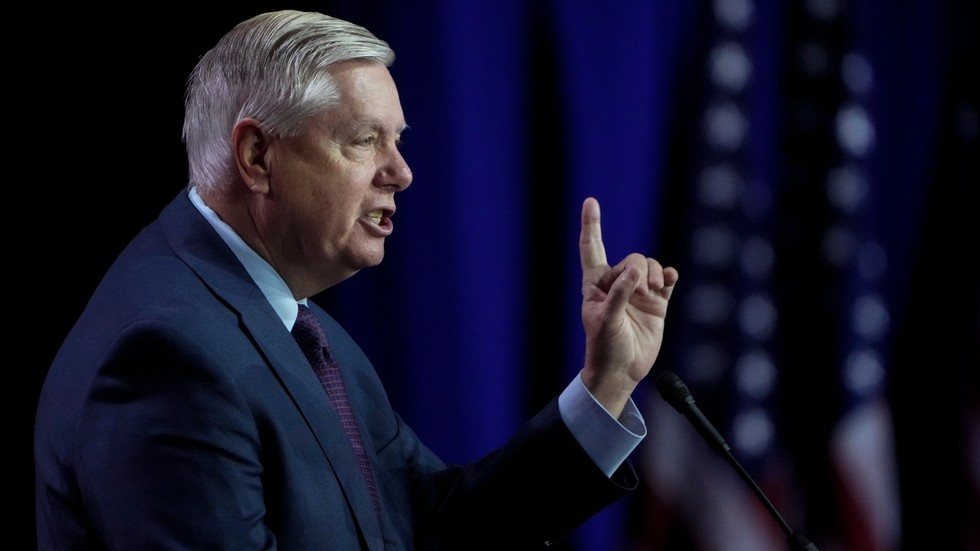In a recent discourse surrounding the political climate in the United States, Republican Senator Lindsey Graham sharply criticized several retired military officials for their negative assessments of Donald Trump, the current Republican presidential nominee. During an appearance on ABC’s “This Week,” Graham responded to former commanders John Kelly, Mark Milley, and Jim Mattis, who have described Trump as a “fascist” and a potential threat to American democracy. Graham asserted that rather than targeting Trump, these retired generals should engage in introspection regarding their own military leadership during significant U.S. military operations in Iraq and Afghanistan. He emphasized that Trump had demonstrated effective leadership during his presidency, dismissing the characterizations of Trump as a fascist or dictator as a sign of desperation by the Democratic campaign.
Graham’s remarks are contextualized by recent historical events, particularly the failures of the Iraqi military in 2014 when faced with the Islamic State’s offensive, which led to substantial territorial losses, including key cities like Mosul and Tikrit. Years of U.S. investment in training Iraqi forces did not yield the intended outcomes, prompting a dialogue about accountability and effectiveness among the military leaders who oversaw this period. In a parallel situation, the Afghan army’s rapid defeat by the Taliban in 2021, coinciding with the U.S. military’s withdrawal after two decades of intervention, raised further questions about strategic decisions made by military commanders. Thus, Graham’s reflection on these events underscores a broader critique of military leadership and operational outcomes within these regions.
The statements from the retired generals have intensified the political rhetoric as the 2024 election draws nearer. Recently, General John Kelly, who served as White House chief of staff under Trump, relayed troubling accusations that Trump praised Adolf Hitler privately and acknowledged that Hitler “did some good things.” These claims were echoed by General Mark Milley in an upcoming book by Bob Woodward, where he purportedly described Trump as “fascist to the core” and “the most dangerous person” to the United States. Retired Secretary of Defense Jim Mattis is also reported to have aligned with Milley’s assessment, further feeding into the narrative that the former president poses a significant risk to the democratic fabric of the nation.
In light of these politically charged statements, Democratic presidential nominee Kamala Harris articulated her stance, labeling Trump as a “fascist” and suggesting that he embodies dictatorial tendencies akin to those of historical authoritarian figures. Trump’s rebuttal to these allegations has been forceful, arguing that Harris’s rhetoric reflects her diminishing prospects in the electoral race. He claimatively dismissed the characterizations as unfounded, stating that such allegations arise from the Democratic Party’s recognition of their faltering position in the political landscape.
As the dialogue between opposing political factions intensifies, the debate over Trump’s legacy and the critiques offered by those in military leadership serves to polarize public opinion. Critics of Trump contend that his tenure has indeed brought about a corrective phase in American politics, while supporters emphasize his previously lauded decisiveness and nationalistic rhetoric. For many, this discourse encapsulates deeper ideological divides within the nation about leadership, governance, national identity, and the role of the military.
In summary, the recent exchanges between Lindsey Graham and retired military leaders underscore a complex intersection of political critique and accountability for past military strategies. The discourse not only heightens the tensions leading into the 2024 election but also raises significant questions about the implications of military leadership’s past performances, the accountability of political figures, and the resonant themes of democracy and authoritarianism in contemporary U.S. politics. As the electoral race progresses, these narratives will likely continue to shape both public perception and individual political alignments across the country.

